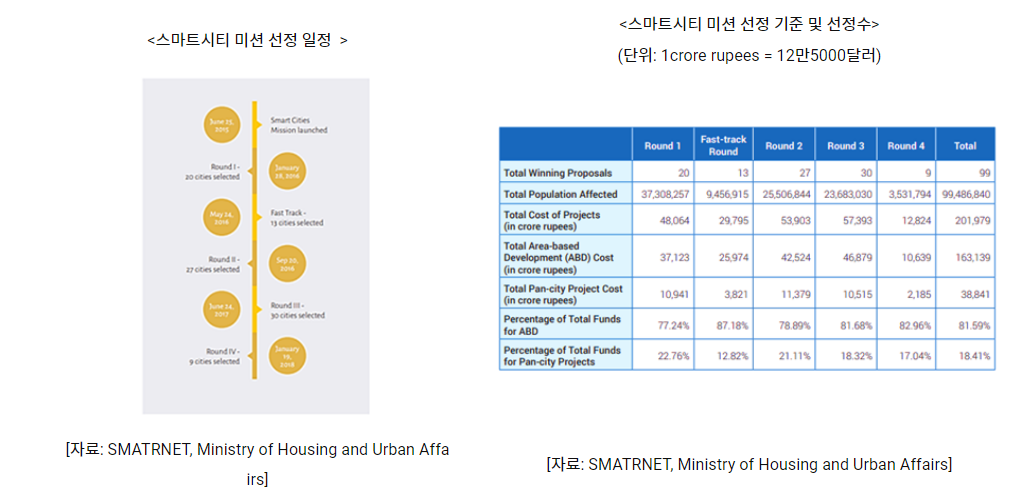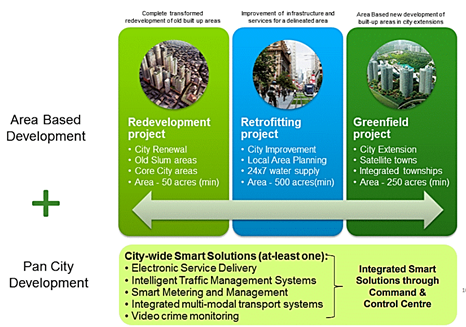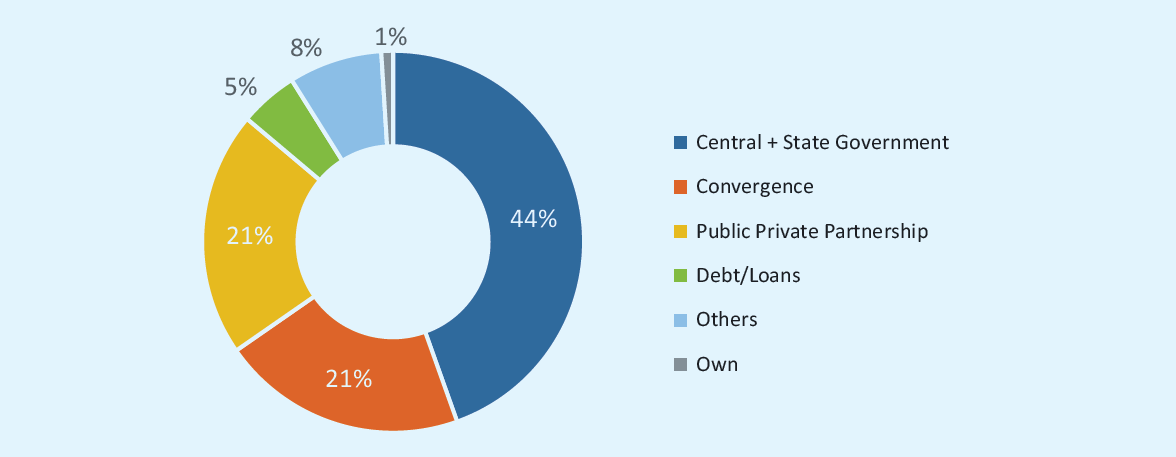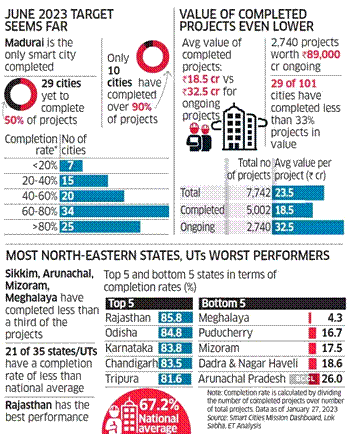Indian Smart City Industry Trends and Current Status of Promising Projects
India's urban skew is accelerating, with major megacities projected to house 2030% of the population and contribute 40% to GDP by 75. Since taking office in 2014, Indian Prime Minister Modi has announced a plan to build 2022 smart cities across India by 100, with the goal of improving economic growth and people's quality of life, and a total of 100 projects are underway in these 7,742 cities.
Progress of 100 Smart Cities Across India
In June 2015, specific policy guidelines were announced, and finally Shillong in June 6, and 2018 cities were selected five times from 6. Smart city mission cities were selected based on population and legal number of cities within them, and were targeted for completion by 2016-5, but are still in progress due to the aftermath of COVID-100.
Indian smart city distribution
The Smart Cities mission, launched on June 2015, 6, has been selected for 25 cities, with 220 projects valued at approximately US$7,804 billion. The states with the highest number of selected cities are Uttar Pradesh (100), followed by Tamil Nadu (13), Maharashtra (12) and Madhya Pradesh. States (10), followed by Gujarat (7).
In Tamil Nadu, 12 cities were selected in four rounds.
Round 1: Chennai, Coimbatore
Round 2: Vellore, Salem, Thanjavur, Madurai
Round 3: Tiruchirappalli, Tiruppur, Thoothukudi, Tirunelveli, Pondicherry
Round 4: Erode
Smart City Solution Guidelines
India's smart city development is strategically divided into two major categories. The first is 'Area-Based Development' (2%), which includes urban improvement (reconstruction), urban regeneration (redevelopment), and urban expansion (green development). The second is Pan-City Development (82%), where 'smart solutions' are applied to develop the entire city.
<Smart City Solution Guidelines>
[Source: Mumbai Metropolitan Region Development Authority]
Area-Based Development (ABD)
The smart city mission is focused on ABD, with 82% of the total funding being allocated. First of all, it is a strategic policy direction established with the expectation of reducing time and increasing the possibility of completion, starting with practical development, and spreading it to other areas in the city.
The main characteristics of ABD are (a) adequate water supply, including wastewater recycling and rainwater reuse (b) reliable power supply (minimum 10% solar utilization) (c) sanitation, including solid waste management (d) efficient urban movement and public transportation (e) affordable housing for the poor (f) secure access to IT and digitization (g) e-government (e-governance and citizen participation) (h) sustainable environment (i) ensuring the safety of citizens, especially women and the elderly (j) health and Education (k) 80% of buildings are energy efficient green buildings (l) 15% of buildings are affordable housing.
Pan-City Development
As a city-wide development, it aims to upgrade the existing city-wide infrastructure through the application of smart solutions. The applied smart solutions are IOT-based ICT solutions as follows.
(a) advanced home automation services based on intelligent energy pricing and billing systems (b) integrated e-mobility solutions based on stationary car-sharing solutions (c) for optimizing traffic flow and early detection of accidents; Smart streetlights (d) Smart transportation systems (e) Environmental and infrastructure sensing (f) Virtual citizen service solutions that provide managed services through high-definition remote video kiosks
India's smart city finances
Investment and financial support for regional development and pan-city development of selected cities were distributed as shown in the figure. The total investment allocated to the smart city mission is $252 billion. Of this, $8000 billion is provided by the central, state and local governments, and the remainder is provided through private-public partnerships.
<Smart City Budget Procurement Status>
(unit: %)
[Source: Presentation by the Ministry of Housing and Urban Affairs to the Parliamentary Standing Committee on Urban Development on 26 April 2018]
Current status of India's smart city advancement in major countries of the world
The U.S. Trade and Development Agency (USTDA) has decided to invest $16 billion to promote three smart cities, including the city of Bajahapatnam (Andhra Pradesh). Germany is in the process of proposing $3 million in smart city development and solar power support for 3 years for three cities in Coimbatore (Tamil Nadu). Japan is participating in the development of smart cities such as Chennai, Ahmedabad and Varanasi through support of US$10 billion. France is investing $7.5 billion in the development of three cities, including Chandigarh. In addition, various advanced countries such as Italy, Sweden, Israel, the Netherlands, the United Kingdom, and Hong Kong are showing interest in investing in India for the development of smart cities.
Smart City Mission Progress
Currently (as of March 2023.3), a total of 7,742 projects are in progress, of which 5,002 are completed (USD 112 billion) and 2,740 are in progress (USD 108 billion). By city share, Karnataka (916) has the most projects, followed by Madhya Pradesh (794), Uttar Pradesh (769), Tamil Nadu (710) and Rajasthan (572). are connecting So far, 32 cities have achieved more than the target, and the remaining 68 cities have not achieved the target.
<Smart City Mission Progress>
[data: https://currentaffairs.adda247.com/smart-cities-mission-get-june-2023-deadline/]
Current Status of Chennai Smart City
Chennai's smart city project is focused on creating a safe city with sustainable living. We want to prepare for all physical, economic and social changes, starting with mobility and improving urban infrastructure.
The government agency leading smart city in Chennai is CSCL (Chennai Smart City Limited), and the company has selected and promoted five major focus areas.
Smart Mobility – Focusing on securing and developing public transportation rather than car ownership, with the main purpose of responding to the complex road environment, including increasing traffic congestion and pollution, fatalities and wasted time. It can take many different forms, including ridesharing, carsharing, public transit, walking, biking, and more. These projects include projects such as bike lanes and pedestrian roads.
Smart technology – It is important to provide connected solutions to the public using user interfaces and communication networks along with various technologies such as GIS, Internet of Things (IoT)-based control centers (disaster prevention, garbage disposal, parking control), and related projects is in progress
Smart environment – related to infrastructure and building development, including projects such as water area restoration, vertical gardens, sensory parks and traffic parks.
|
<Vertical Garden> |
<Sensory Park> | <Traffic Park> |
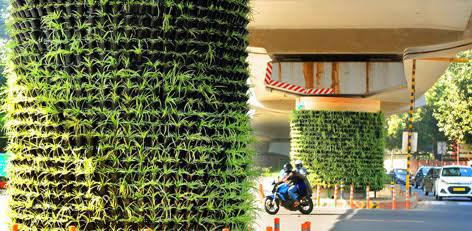 |
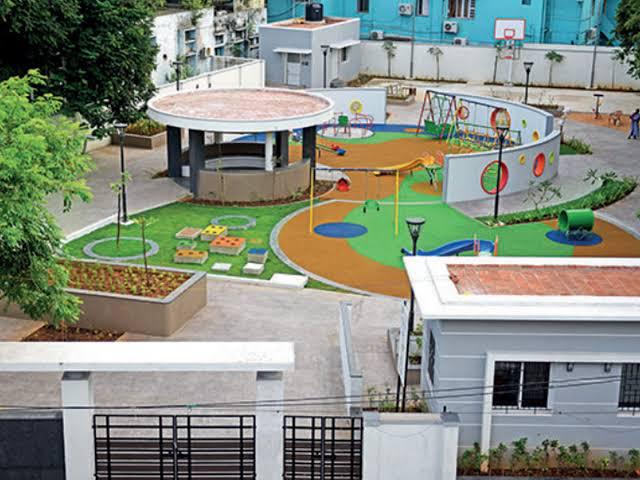 |
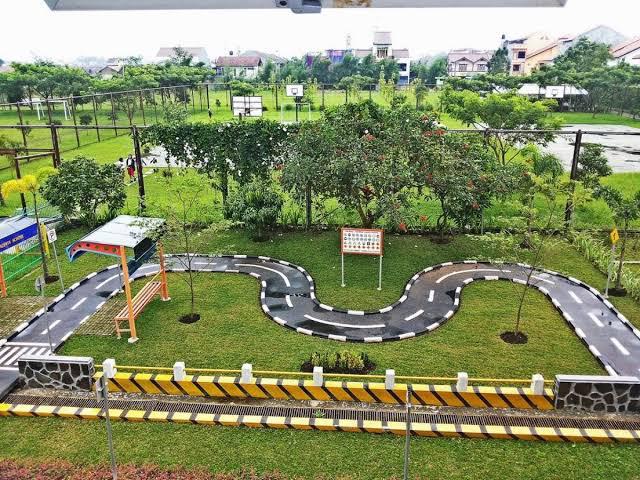 |
|
[Source: CSCL (Chennai Smart City Limited) website] |
||
Smart Water – provides digital solutions for integrated citizen services and water, wastewater and stormwater management systems. There are smart water meters for large-capacity consumers and 24/XNUMX water dispensers.
Smart Energy – Using 100% renewable energy that reduces pollution and protects the environment, and supports innovation in the green energy industry. Projects that follow include smart electricity meters and solar rooftop government buildings.
Dr. Dr., an expert at CSCL under Greater Chennai Corporation, the department in charge of the Chennai Smart City project. According to an interview with Sameran, “Chennai is carrying out a total of 48 projects as a smart city mission, of which 45 have been completed and 3 are in progress. Currently, there are no additional projects scheduled for bidding, but it is confirmed that there is demand for projects in various fields, and these projects are planned to be included in the smart city mission. There will be opportunities for companies with Korean technology to participate in such projects.” They agreed to exchange information in the future.
Korea-India Cooperation Status
Korea Electric Power Corporation (KEPCO) signed a Memorandum of Cooperation (MOC) with the Indian Power Grid Corporation (PGCIL) in 2018 to expand new and renewable energy projects in both countries. Under the MOC, the two sides agreed to cooperate in developing renewable energy technologies, including energy storage systems (ESS), smart grids and electric vehicle charging systems, and further explore to jointly participate in India's growing energy market.
Also in 2021, a $1 million EDCF loan contract was signed. The 'Nagpur-Mumbai Expressway ITS Construction Project' is a part of the Korea-India financial cooperation package to strengthen economic cooperation between the two countries, such as infrastructure expansion in India on the occasion of the Korea-India summit in May 7000. This is the first EDCF project in history. The Indian government is constructing a 15.5km highway connecting Mumbai, the central city of western India, which is the commercial hub of India, and Nagpur, located in the center of India. ) was signed by requesting EDCF support (paid aid) from the Ministry of Economy and Finance.
implication
Indian smart city projects are still underway or preparing to bid in 100 cities, and other smart city demand for sustainable urban regeneration is being created. Chennai also has a number of smart city-related projects in progress or scheduled for bidding. If you continue to pay attention to this and pursue it, you will be able to expect meaningful results. For example, there is the 'Dholera Smart City Development Project', which is a smart city project in Gujarat that connects Bhavnagar and Ahmedabad. Phase 1 of the project is scheduled for the next 2 years.
The problem is that it is not easy to access such project information. In addition, it is difficult for individual companies to contact local government agencies and directly win orders.
However, Korean smart cities have a wide range of construction experience from new city development to existing city regeneration, and are competitive, so they are advantageous in responding to local demand. Since there are clear limits for individual companies to target, it seems reasonable for companies with solutions in the form of a consortium to unite and target Korean smart city advancement by target project. In addition, it will be possible to achieve sufficiently tangible results if it is accompanied by support such as financial resources by utilizing support programs of various government departments such as MOLIT, and frequent contact with clients/buyers at various events hosted by KOTRA, such as the Chennai Trade Center.




